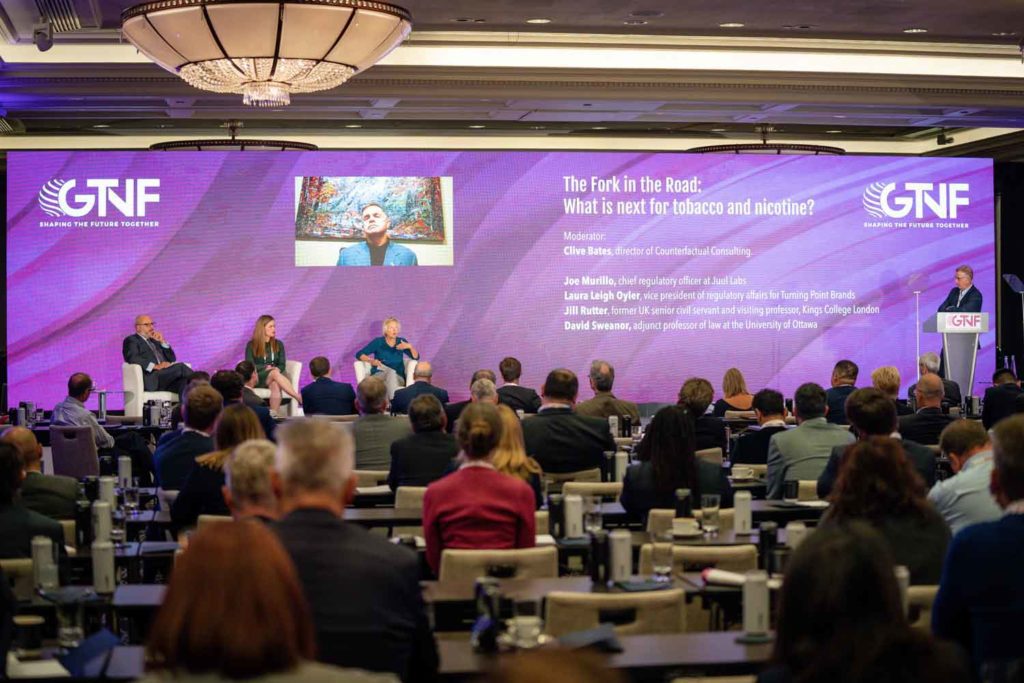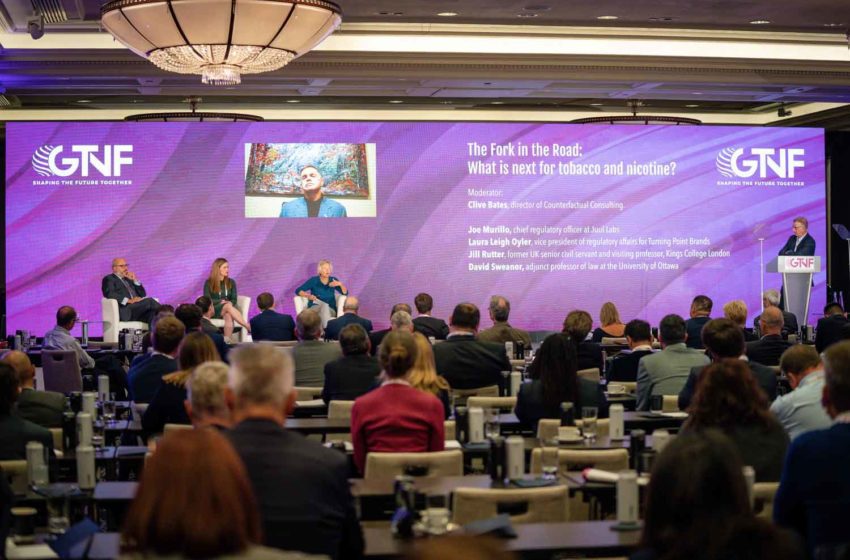
The vaping industry faces many challenges. The road to a viable future for these products must pass through sensible regulations based on science. In the current environment, unfortunately, this will be challenging, according to speakers on the GTNF plenary panel The Fork in the Road: What is Next for Tobacco and Nicotine. Misperceptions surrounding nicotine and vaping products, the panelists agreed, are furthered by the mass media’s “wonton disregard” for the science behind the tobacco harm reduction potential of electronic nicotine-delivery systems (ENDS).
One speaker noted that in addition to many countries banning or erecting insurmountable barriers to vaping products, well-funded anti-nicotine activists are attacking the people who are bringing reduced-risk products to adult combustible cigarette smokers trying to quit smoking. These groups are opposed to the tobacco harm reduction that science and innovation can bring.
All of these activities together only serve to enhance the vaping industry’s problem: the massive public misperception that vaping is as deadly as smoking cigarettes. The fact that a significant number of physicians mistakenly belief that nicotine, rather than combustion, is responsible for smoking-related illness, bodes ill for the perceptions among the general population. “If physicians believe this, imagine the views of the average smoker in Kenya or Chicago, Illinois, or in Australia,” one speaker said.
While anti-nicotine activists have done their share to misperceptions, the vaping industry too is partly to blame, according to one panelist. The ENDS industry can do a lot more than feel helpless or complain, this speaker noted. Innovation in harm reduction cannot occur without the vaping industry’s support. That means responsible marketing, combating illicit trade, limiting youth access and making sure that the ENDS industry is doing what it can to prevent underage use.
Panelists also expressed concern about the direction of the vapor market in the wake of the U.S. Food and Drug Administration’s marketing denial orders (MDOs), with some describing a “Wild West” scenario. After receiving MDOs, some companies have turned to synthetic nicotine because that product currently is outside of the agency’s jurisdiction. A panelist said that the FDA’s “scorched earth” approach to flavored products is only creating bigger problems in the market, adding that if a market isn’t regulated, there is still going to be an unregulated illicit market that has the potential to be more deadly than that for combustible tobacco.
“Nobody wants kids to take up the products … it’s a very significant responsibility that we in industry be there to be the stewards of that concept in generating science and evidence,” a panelist said. “We should all be proud of the good science that is being generated … that is our responsibility: to generate and publish and participate in the scientific debate and pursue reasonable regulation. What is reasonable? I don’t know. It’s not going to be nothing. We all have to get over it and figure out what is the right way forward so we can go back to helping the consumer and making sure we’re only serving smokers who are looking for alternatives to combustibles.”

